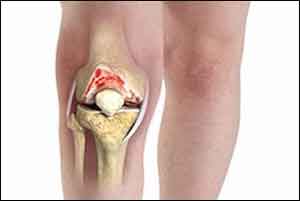- Home
- Editorial
- News
- Practice Guidelines
- Anesthesiology Guidelines
- Cancer Guidelines
- Cardiac Sciences Guidelines
- Critical Care Guidelines
- Dentistry Guidelines
- Dermatology Guidelines
- Diabetes and Endo Guidelines
- Diagnostics Guidelines
- ENT Guidelines
- Featured Practice Guidelines
- Gastroenterology Guidelines
- Geriatrics Guidelines
- Medicine Guidelines
- Nephrology Guidelines
- Neurosciences Guidelines
- Obs and Gynae Guidelines
- Ophthalmology Guidelines
- Orthopaedics Guidelines
- Paediatrics Guidelines
- Psychiatry Guidelines
- Pulmonology Guidelines
- Radiology Guidelines
- Surgery Guidelines
- Urology Guidelines
Age, CRP levels useful guides for tapering biologics in rheumatoid arthritis

Rheumatoid arthritis patients in remission may experience more successful tapering of their biologic drugs if they meet a certain set of factors, including younger age, no concomitant steroid use, and low level of serum CRP, according to new research findings presented this week at the 2017 ACR/ARHP Annual Meeting in San Diego.
Rheumatoid arthritis (RA) is a chronic disease that causes pain, stiffness, swelling, and limitation in the motion and function of multiple joints. An estimated 1.3 million Americans have RA, and the disease typically affects women twice as often as men.
RA patients who are in sustained remission often may taper their dose of biologic disease-modifying antirheumatic drugs, or biologics, though it is unknown which tapering strategy will be most successful for individual patients. To learn more about this process in a real-world setting, researchers in Japan analyzed a retrospective cross-section of RA patients to look for predictive factors that led to successful down-titration or determining the most effective lower dose, of biologic DMARDs.
"Biologic DMARDs are effective in treating patients with RA, but they are associated with high costs and dose-dependent adverse effects," said Takaaki Komiya, MD, a researcher at Yokohama City University Graduate School of Medicine and a lead author of the study. Biologic DMARD tapering seems to be a feasible approach and it is widely used in clinical practice, but a significant proportion of patients experience the relapse. It is important for rheumatologists to know the clinical characteristics of patients who might successfully maintain remission after down-titration."
In their study, the researchers enrolled 347 RA patients from two university hospitals in Japan. They included patients who fulfilled the 1987 ACR and/or 2010 ACR/EULAR classification criteria and were treated with any one of the following biologics for longer than six months: infliximab, adalimumab, etanercept, golimumab, certolizumab-pegol, tocilizumab or abatacept. Patients enrolled in this study had a mean age of 62.5 years, mean disease duration of 12.3 years and were predominantly female (83.6 percent). Patients were divided into two groups, where 255 patients were on a stable treatment and 92 patients were tapered. The patients' clinical characteristics, laboratory data, and X-rays reports were collected.
The two groups were similar with regard to their baseline disease activity, as defined by different disease activity scores, the prevalence of anti-citrullinated protein antibody and rheumatoid factor and X-ray findings. However, several significant differences were observed. The patients who were successfully tapered were both younger at disease onset (mean age of 47.1 versus 51 in the stable treatment group) and at the time they began using biologics (mean age of 55.5 versus 59.6 in the stable treatment group). Seventy-four percent of the patients who were successfully tapered were biologic-DMARD naïve compared to 56 percent in the stable treatment group. Patients with no concomitant use of oral corticosteroids and low levels of C-reactive protein (CRP) levels were more likely to successfully taper.
"An important strength is that this study reflects the 'real world' experience," said Dr. Komiya. "The results of this preliminary study may help rheumatologists to differentiate RA patients who would successfully down-titrate biologics. This management might result in substantial reduction in costs and possible reduction in dose-dependent side effects."

Disclaimer: This site is primarily intended for healthcare professionals. Any content/information on this website does not replace the advice of medical and/or health professionals and should not be construed as medical/diagnostic advice/endorsement or prescription. Use of this site is subject to our terms of use, privacy policy, advertisement policy. © 2020 Minerva Medical Treatment Pvt Ltd